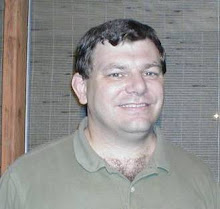Last night my wife and I watched the new documentary For the Bible Tells Me So, and I highly recommend it. It features interviews with five families from evangelical Christian backgrounds who had to deal with the fact that one of their number was gay or lesbian. The prominent names among the five are Bishop Gene Robertonson of the Episcopal Church and former congressman Dick Gephardt (whose daughter is gay). The others were the family of a young gay man who came out as a teenager several years ago; a woman whose daughter committed suicide after the mother rejected her identity as a lesbian; and an African-American Baptist preacher's family whose daughter is gay.
The movie also features theologians, sociologists, and clergypeople, inlcuding Harvard chaplain Peter Gomes, Bishop Desmond Tutu of South Africa, and others. Their interviews focus on the biblical text and the sociological phenomenon of homophobia. They offer good perspectives on the six or seven biblical verses that are ripped out of context by fundamentalists and evangelicals to provide a "biblical veneer" to cover their fear and exclusion of people different from themselves.
It's a series of well-weaved-together quotes and clips, and it illustrates in a powerful way the spiritual growth that these issues forced within several normal American Christian families. Toward the end of the movie, one of the families participates in a march at the Focus on the Family headquarters in Colorado Springs, staged to call attention to the homophobia propogated by that ministry.
The movie is a clear illustration of the well-documented fact that people who know a gay person are much less likely to be opponents of the "homosexual agenda," and are almost certainly less belligerent about it if they are. But gay people who exist in fundamentalist and evangelical communities typically don't come out, and thus most people in those communities do not know an openly gay person.
Political issues around GLBT rights are not really moral or theological issues for most. Certainly allowing gays to marry won't hurt heterosexual marriages. The real issue is fear--fear of the unknown, fear of the 'other'. It's the same reason that the current Republican rhetoric against "scary brown people"--Latinos and Arabs--is so effective. It's fear of the 'other'.
A friend of mine is an engineering manager at a local tech company, and a member of his team is a lesbian. He has had several experiences of co-workers who learn of her orientation for the first time, and their first response is always, "But she's so nice!"
Once Americans realize that GLBT people are just normal, everyday, nice people, we will have come a long way. I'm very optimistic that today's younger generations, once they hit critical mass in our culture, will lead the way for us.
Saturday, December 22, 2007
Subscribe to:
Post Comments (Atom)

No comments:
Post a Comment